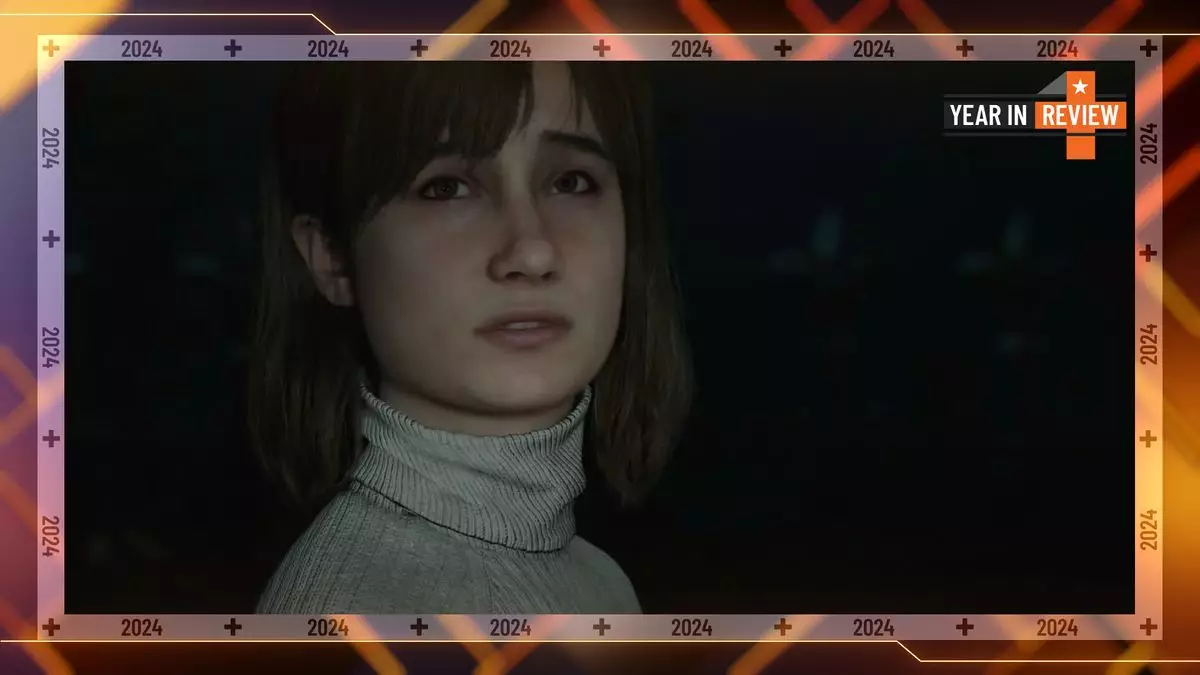The portrayal of women in video games is an evolving dialogue, often saturated with critiques regarding their representation and the narratives that surround them. In the reimagined version of Silent Hill 2, Bloober Team embarks on a journey to delve deeper into the complex psyche of Angela Orosco, a character who has sparked controversy and conversation since her introduction. As a 19-year-old woman grappling with an unbearable weight of trauma, Angela’s character transcends the simplistic notions of victimhood, inviting players to explore the intricacies of her emotional landscape rather than reducing her to mere objectification.
Originally introduced in Konami’s Silent Hill 2 back in 2001, Angela’s character was primarily a narrative device, reflecting the psychological horrors that permeated the game’s environment. However, Bloober’s remake breathes new life into Angela, offering her a depth that many players found lacking in the original. The criticism regarding her redesigned appearance—too soft, too youthful—leans into a disturbing societal tendency to equate suffering with outward expressions of pain. Despite these critiques, Angela’s transformation reflects the poignancy of her journey, embodying a mix of vulnerability and quiet strength.
Angela’s introduction to players is haunting. In a pivotal scene, she’s discovered in a moment of despair, staring into a knife rather than a mirror, symbolizing her internal struggle with self-worth and the desire for escape. This moment serves not just as a reflection of her circumstances but as an emblematic representation of the struggles that many individuals face when grappling with trauma and depression. Her words resonate with a haunting truth: “It’s easier just to run,” revealing the complex interplay between self-preservation and hopelessness.
Complexity of Victimhood
Angela’s narrative is steeped in trauma that bears witness to the complexities of victimization. The original adaptation, with its skewed portrayal of Angela—an almost caricatured victim—missed the mark of fully realizing her lived experiences. In stark contrast, the remake imbues her story with a haunting depth, particularly during the haunting boss battle with Abstract Daddy. This encounter transcends the traditional horror trope, morphing into a visceral experience that mirrors Angela’s layered trauma.
This redefined encounter emphasizes Angela’s resistance and the horror of her reality. As she grapples with the representation of her abuser, the fight against Abstract Daddy becomes a cathartic battle rather than merely a run-of-the-mill gaming challenge. Bloober successfully dismantles the previously binary perception of victimhood and power, unveiling Angela as a nuanced character who encapsulates a range of emotions—from anger and despair to resilience and defiance.
The Art of Voice Acting and Performance
An essential aspect that reinforces this transformation is the voice acting, which has a profound impact on the audience’s perception of Angela. Gianna Kiehl’s portrayal grants Angela a visceral authenticity, capturing the subtleties of her rage and shame—emotions that encapsulate the heart of her character. This soulful representation contrasts sharply with the more wooden performances prevalent in earlier iterations, allowing players to connect more profoundly with Angela as a person rather than as a mere symbol of suffering.
The poignant moment when Angela declares, “I deserved what happened. Don’t pity me. I’m not worth it,” reflects a gut-wrenching acknowledgment of her reality that urges players to confront the uncomfortable truths behind victimization and self-worth. It paints a chilling picture of the isolation and abandonment that often accompany those who have suffered from trauma.
As someone who has faced challenges mirroring Angela’s tumultuous journey, the emotional resonance of Bloober’s remake struck a personal chord. During periods of personal loss, confrontations with Angela’s pain became a metaphorical reflection of my struggle, illuminating the shadows of my childhood fears and anxieties. The game, in its renewed capacity, became not only a form of entertainment but a safe space to navigate complex emotions, acknowledging the scars left by past experiences.
In Angela’s story, one sees a part of themselves—facing the fragility of existence while yearning for connection. This shared experience allows players to engage with her trauma on a personal level. The intricate portrayal of her character challenges the misconceptions that often surround female representation in games, emphasizing that complexity alone can shape a character into an emblem of strength and resolve.
Concluding Thoughts: The Future of Representation
In a landscape where women’s roles are frequently overshadowed by outdated tropes, the Silent Hill 2 remake serves as a hopeful example for the future. Angela Orosco emerges not merely as a victim but as a fully realized character whose struggles invite understanding and empathy. Bloober’s dedication to honest storytelling elevates Angela’s journey, challenging players to acknowledge the darker recesses of human experience. Ultimately, it is through recognizing these intricacies that we can cultivate a more profound appreciation for the characters we encounter in gaming—art imitating life, where everyone deserves to be seen.


Leave a Reply